
Professor of Energy & Climate Policy at Oxford University
Energy programme lead @ecioxford @OrielCollege Senior Associate @cisl_cambridge
3 subscribers
How to get URL link on X (Twitter) App


 1/ Weightlifting is not mindless; it’s a strategic practice. A key principle is progressive overload, where you gradually increase the difficulty of your workouts—by adding weight, reps, or frequency—building strength, muscle, and endurance over time.
1/ Weightlifting is not mindless; it’s a strategic practice. A key principle is progressive overload, where you gradually increase the difficulty of your workouts—by adding weight, reps, or frequency—building strength, muscle, and endurance over time.

 For those wanting to understand why the most expensive generator dispatched sets the price I highly recommend this explainer by @LionHirth hertie-school.org/en/news/detail…
For those wanting to understand why the most expensive generator dispatched sets the price I highly recommend this explainer by @LionHirth hertie-school.org/en/news/detail…

 1/ This is no different for other countries. Here's data from @CEERenergy on the minutes of interruptions per customer per year (SAIDI). Whilst wind and solar have seen record growth in Europe customer DO NOT experience more interruptions. ceer.eu/publication/7t…
1/ This is no different for other countries. Here's data from @CEERenergy on the minutes of interruptions per customer per year (SAIDI). Whilst wind and solar have seen record growth in Europe customer DO NOT experience more interruptions. ceer.eu/publication/7t…

 1/ Modelling at EU level indicates that gas demand will decline by 71-73% by 2050 as part of the path to net zero climate targets.
1/ Modelling at EU level indicates that gas demand will decline by 71-73% by 2050 as part of the path to net zero climate targets. 

 1/ Until recently operational emissions from buildings were the elephant in the room. This is changing now with more attention being paid to them.
1/ Until recently operational emissions from buildings were the elephant in the room. This is changing now with more attention being paid to them. 
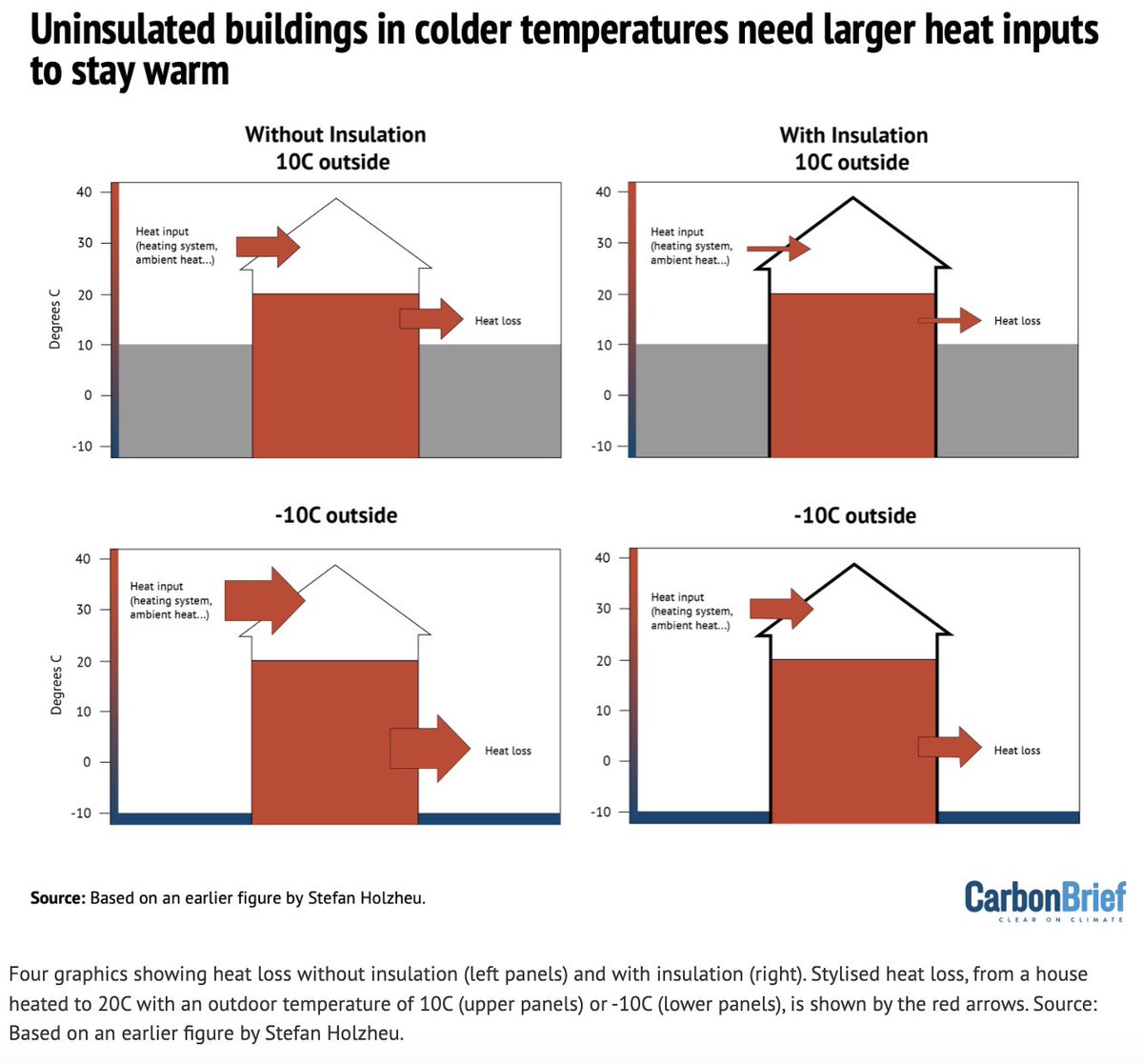
 1/ Many uninsulated homes and buildings are already heated to comfortable temperatures with heat pumps, as shown across multiple case studies, including an uninsulated stone church. isoenergy.co.uk/projects#sort=…
1/ Many uninsulated homes and buildings are already heated to comfortable temperatures with heat pumps, as shown across multiple case studies, including an uninsulated stone church. isoenergy.co.uk/projects#sort=…
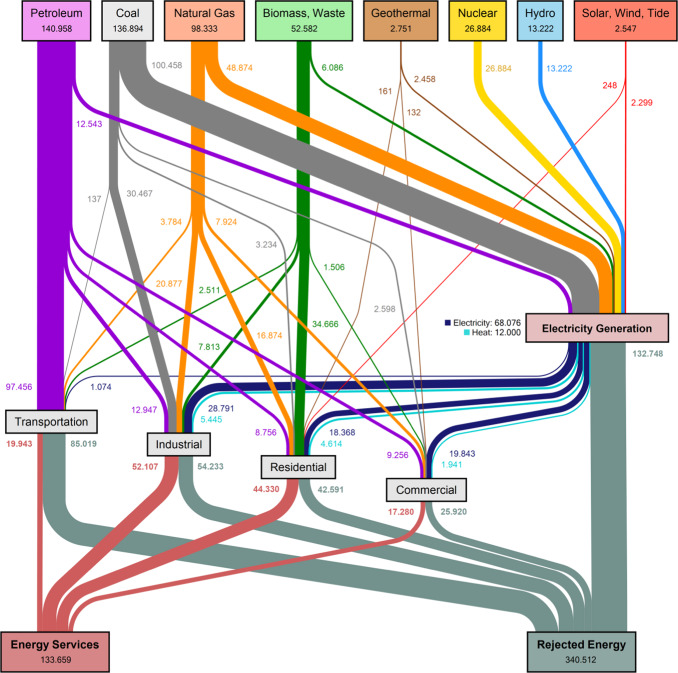
 1/ The future energy system will be characterised by a lot more "electricity-only" renewables (mainly solar and wind). Many of the conversion losses are currently due conversion losses at the electricity generation stage. This will no longer be anywhere near as significant in a system dominated by solar and wind.
1/ The future energy system will be characterised by a lot more "electricity-only" renewables (mainly solar and wind). Many of the conversion losses are currently due conversion losses at the electricity generation stage. This will no longer be anywhere near as significant in a system dominated by solar and wind.

 1/ Here are some real world examples starting with beer brewing.
1/ Here are some real world examples starting with beer brewing. https://x.com/janrosenow/status/1674372073832022016?s=20



 1/ Heating is a major contributor to the UK's carbon emissions. Without decarbonising heating it is physically impossible to meet the UK's climate targets. assets.publishing.service.gov.uk/media/61d450eb…
1/ Heating is a major contributor to the UK's carbon emissions. Without decarbonising heating it is physically impossible to meet the UK's climate targets. assets.publishing.service.gov.uk/media/61d450eb…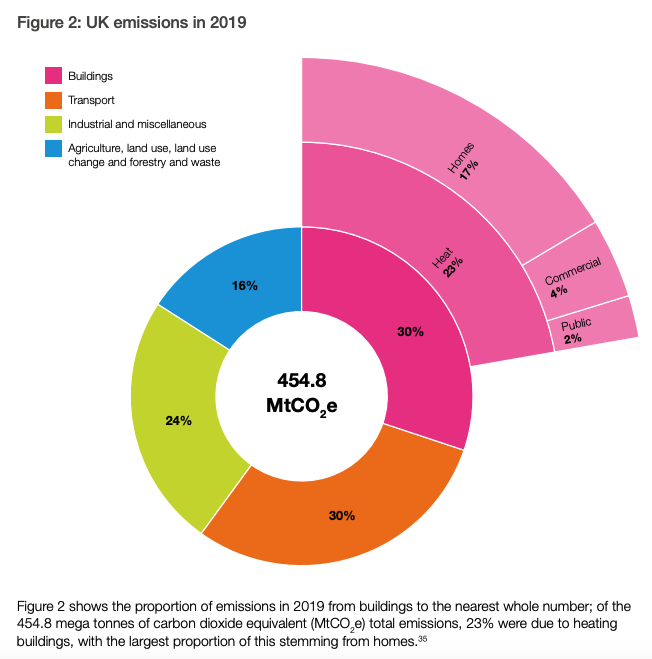

 1/ First of all there isn't a good description of what a hydrogen based heat pump is in the paper as they define it. A little digging on the website of Sheffield University where the authors are based reveals this:
1/ First of all there isn't a good description of what a hydrogen based heat pump is in the paper as they define it. A little digging on the website of Sheffield University where the authors are based reveals this:

 1/ ‘Fabric first’ describes an approach to improving the thermal performance of residential buildings by prioritising the improvement of fabric.
1/ ‘Fabric first’ describes an approach to improving the thermal performance of residential buildings by prioritising the improvement of fabric. 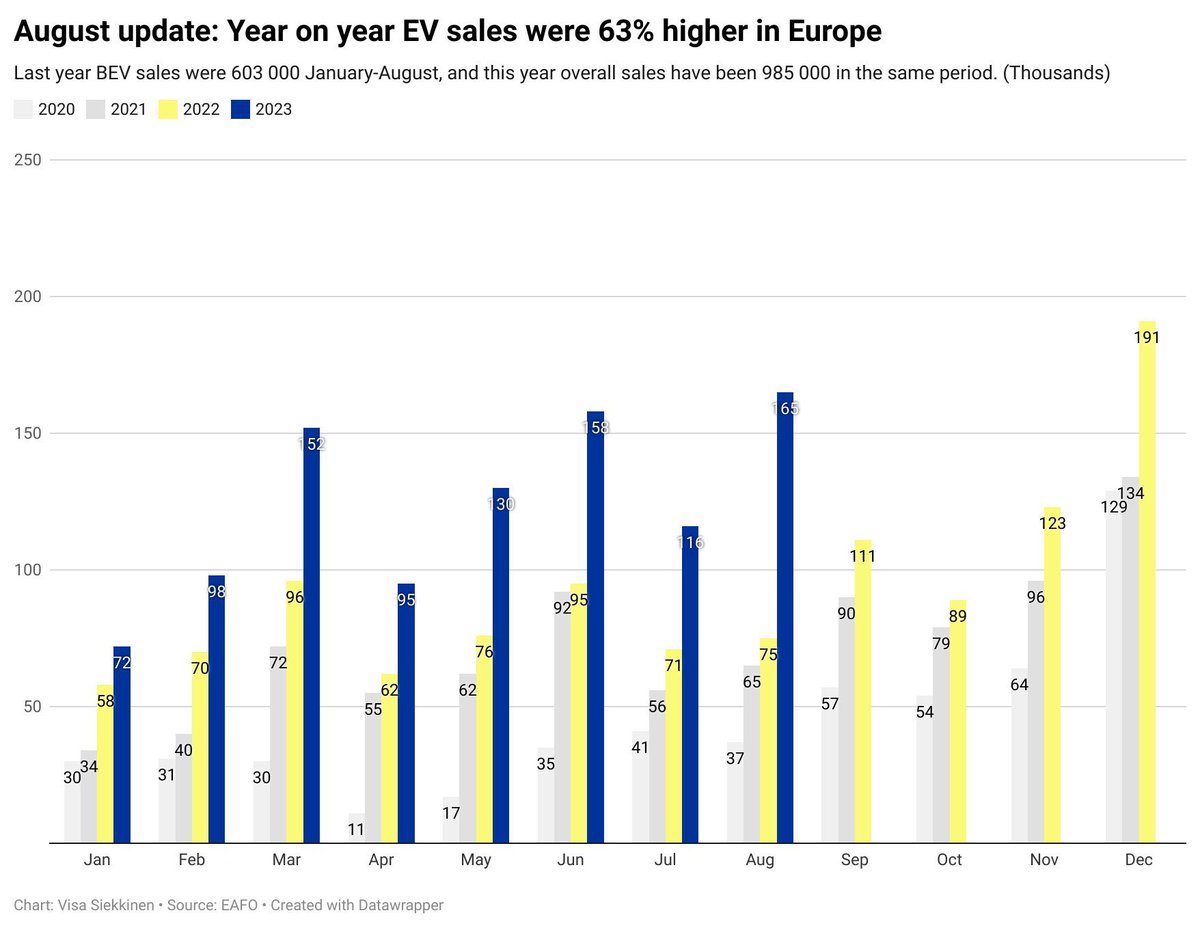
 1/ Also in China sales are up.
1/ Also in China sales are up. https://twitter.com/johnrhanger/status/1722219855787778391
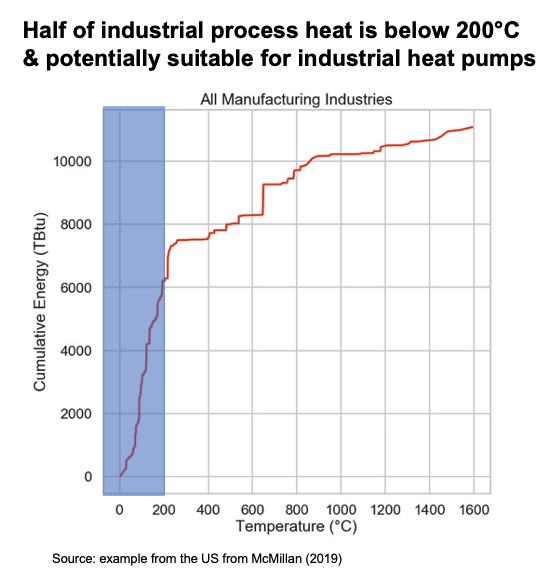
 1/ Here are some real world examples starting with beer brewing.
1/ Here are some real world examples starting with beer brewing. https://twitter.com/janrosenow/status/1674372073832022016

 1/ Electrification is energy efficiency.
1/ Electrification is energy efficiency. https://twitter.com/janrosenow/status/1551845956630577154

 1/ Since 01 Oct electricity price cap is 27p/kWh, gas 7p/kWh. I crunched numbers in this thread a few weeks ago. The result is that running costs of heat pumps are lower with an SCoP of >2.9 with those prices compared to a gas boiler at 85% efficiency.
1/ Since 01 Oct electricity price cap is 27p/kWh, gas 7p/kWh. I crunched numbers in this thread a few weeks ago. The result is that running costs of heat pumps are lower with an SCoP of >2.9 with those prices compared to a gas boiler at 85% efficiency.https://twitter.com/janrosenow/status/1702621958976708955


 1/ This was my original meta-review for @Joule_CP . It identified 32 independent studies with none of them showing a significant role for hydrogen for heating homes.
1/ This was my original meta-review for @Joule_CP . It identified 32 independent studies with none of them showing a significant role for hydrogen for heating homes.https://twitter.com/janrosenow/status/1574776025879175168

 1/ The average gas demand in the UK is 12,100 kWh of which 2.4% for cooking.
1/ The average gas demand in the UK is 12,100 kWh of which 2.4% for cooking. 
 1/ Around a third of the world's final energy is consumed directly in buildings, mainly for space heating and hot water, and more than 64 % of this is currently provided by fossil fuels. It is therefore impossible to meet climate goals without decarbonising the buildings sector and especially heating.
1/ Around a third of the world's final energy is consumed directly in buildings, mainly for space heating and hot water, and more than 64 % of this is currently provided by fossil fuels. It is therefore impossible to meet climate goals without decarbonising the buildings sector and especially heating.

 1/ As @FrediOtto and her team have shown "every heatwave in the world is now made stronger and more likely to happen because of human-caused climate change".
1/ As @FrediOtto and her team have shown "every heatwave in the world is now made stronger and more likely to happen because of human-caused climate change". https://twitter.com/FrediOtto/status/1538178712289611776